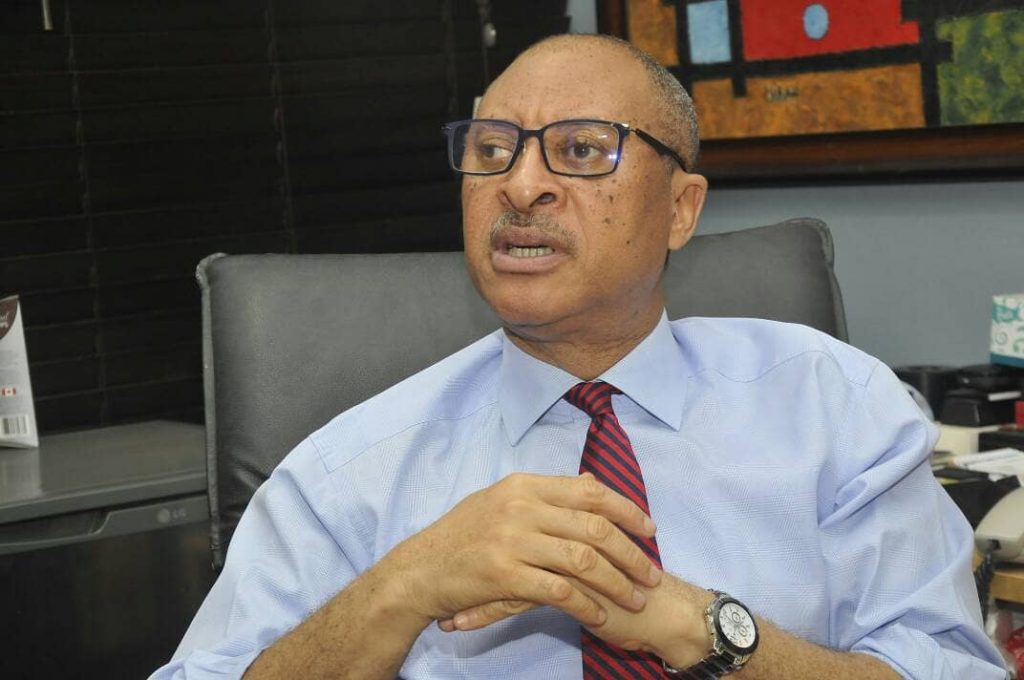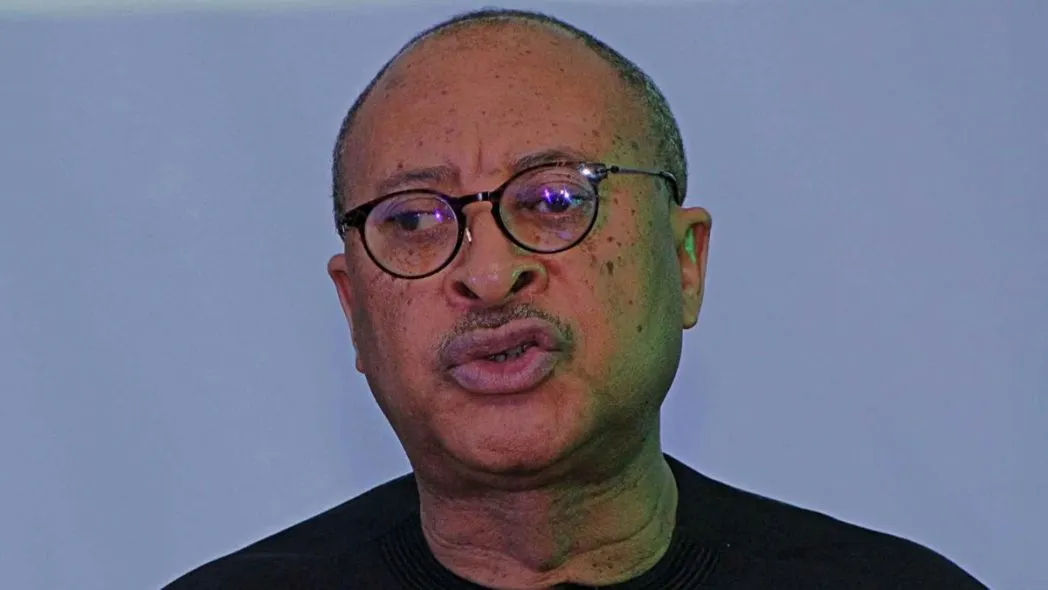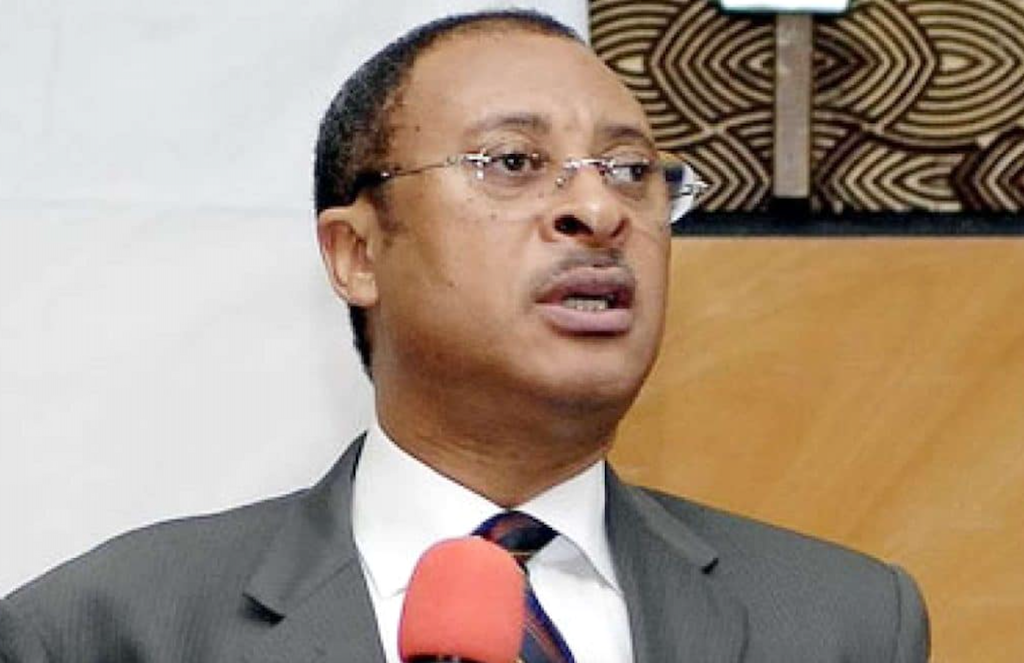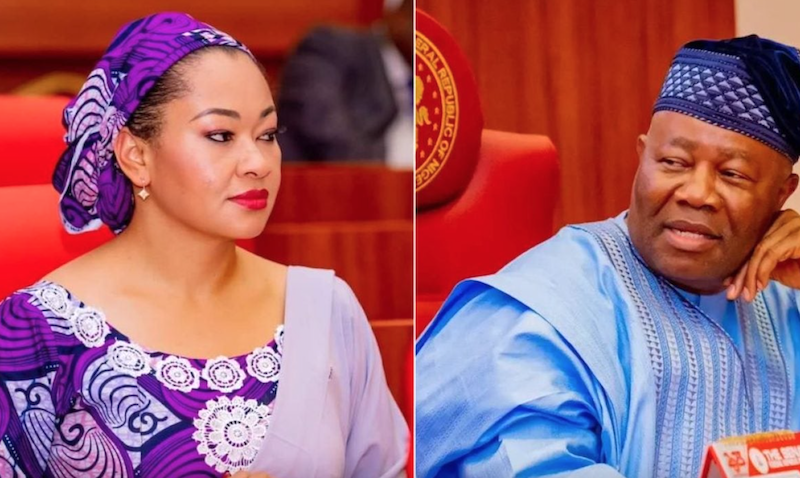The Federal High Court in Abuja on Thursday, fixed Sept. 29 for judgment in a suit filed by the Department of State Services (DSS) against Prof. Pat Utomi over his alleged plan to establish what he called, “a shadow government” in the country.
Justice James Omotosho fixed the date after DSS’ counsel Akinkolu Kehinde, SAN; Utomi’s lawyer, Chief Mike Ozekhome, SAN, and the invited amici curiae (friends of the court) made their submissions for and against the suit.
Justice Omotosho had, on June 25, informed the parties on the need to invite at least six eminent experts in the legal profession from the six geopolitical zones of the country to advise the court on the instant suit, being a matter of national interest.
He said the inputs of the amici curiae would be shared with the parties before the hearing and judgment in the matter.
The judge announced that Prof. Ademola Popoola, a Professor of International Law and Jurisprudence from Obafemi Awolowo University (OAU), Ife; Vice Chancellor of Imo State University, Prof. Uchefula Chukwumaeze and Mr Joseph Daudu, SAN, former Nigeria Bar Association (NBA) were invited.
Others are Mr Joe Gadzama, SAN; Prof. Dakas Dakas, SAN, former Dean, Faculty of Law, University of Jos in Plateau; Mrs Miannaya Essien, SAN, and Yakubu Maikyau, SAN, immediate-past NBA President.
Upon resumed hearing on Thursday, Justice Omotosho asked all parties to adopt all their processes which they did.
Kehinde, while arguing his case, said Utomi had no locus standi (legal right) to establish a “shadow government,” which had no provision in the 1999 Constitution.
He prayed the court to dismiss Utomi’s preliminary objection because the DSS brought the suit based on its constitutional rights.
On the originating summons, Kehinde said there was no opposition by the defendants to any of the 15 paragraphs.
“The plaintiff believes the shadow government is meant to subvert its democratic rights,” he said.
The lawyer argued that no matter how sentimental their concerns were, no group is allowed to establish any organisation against the authority of the government.
“The right to express one’s freedom is granted, but there is a limitation where the exercise of such right brings tension against the government of the day,” he said.
He urged the court to agree that the application and injunction of this nature is proper.
“We must not allow the cat to get out of the cage before chasing it,” he said.
He maintained that the potential danger of such action is grave.
“We know how Boko Haram started, and even IPOB. We must not wait for crisis to happen before we act,” he added.
The defence lawyer, Ozekhome, disagreed with Kehinde ‘s submission. He prayed the court to dismiss the suit.
He said what the plaintiff sought to do was to seal the lips of Nigerians from speaking against the present government.
“They are trying to hand my lord strong chains, stronger than those that dehumanised slaves over 500 years ago, to chain Nigerians.”
He told the court not to accept such because it had the effect of promoting a totalitarian government.
“The court should not allow it so that democracy will not go down the drain,” he said.
He questioned why the DSS should be afraid of an initiative launched virtually, which aimed to serve as a credible opposition to the current administration.
According to him, it focuses only on scrutinising government actions, policies and proffering solutions in sectors such as law, education, etc., and they are saying it is to overthrow the government.
Ozekhome said the shadow government is only made up of like-minded individuals and an ombudsman.
“It does not have a legislature, executive, ministers or judiciary like Nigeria or the United States,” he said.
He said that there are crimes like kidnapping, banditry, terrorism, which the country should focus on as criminal offences.
He submitted that since the security outfit is only afraid of the term “shadow government” without evidence, he said the suit is a waste of time.
“They are trying to criminalise an ordinary shadow government. No Nigerian has proved to the plaintiff that he (Nigerian) is confused, so there is no evidence that the group will cause a crisis.”
Presenting his opinion, an amicus curiae, Joseph Daudu, SAN, said the issue with the “shadow government” was not about what they had done, but the nomenclature.
“It is about what the people think when such a government is mentioned.
“Such a name might create an inimical situation where people bypass the National Assembly and bring down the activities of the legitimate government from the comfort of their bedrooms.
“It is strange and fraught with endless crisis, my lord, it is unconstitutional,” he said.
On fundamental rights, he said: “No right is being shackled. Utomi has his right to criticise, but when he gathers people whom the constitution does not know the process involved, it becomes excessive and inappropriate if the fundamental rights he seeks to enforce are not tied to legal, lawful, and constitutional issues.”
On his part, Gadzama said there are two types of breaches. He said there are speculative and actual constitutional breaches.
He stated that speculative breach occurs when the government alleges there is a breach of the constitution.
In his words, the “shadow government” had not done anything to warrant the originating summons.
Considering the public angle, he said granting the plaintiff’s request “will stifle the enthusiasm of the people in the exercise of their rights and expression.”
He said if the issues were criminal, the DSS would have acted.
“Yes, there could be breaches, but the court is the last hope of the common man,” he said.
He argued that nomenclature should not be the problem.
“The dictionary meaning of a government could mean an association or organisation. Government does not only mean Nigeria, UK, or USA.
“We are practising people-oriented democracy, and we must always derive our powers from the people
“We should always listen to them,” he said, citing Section 1(2) of the 1999 Constitution, which, he said, points to when a group attempts to take over government.
He said that groups such as Boko Haram openly say they have taken control, “but there is no evidence that the shadow government has taken any control.”
He said Section 40 allows peaceful assembly and “that they are not known to the ruling government does not mean they have done anything wrong.”
Mrs Essien said the character and characteristics of a thing are what make it what it is, and not what it claims to be.
“If I tell you that I am a cat, does it mean I am a cat? Even if I roar and continue to say I am a lion, it does not remove the fact that I am human. Therefore, the use of those expressions do not make them wrong,” she said.
She urged the court to look at the law and assess the actual activities of the “shadow government” before taking a decision.
According to Maikyau, although the group is not recognised by the government, it is a structure known to others.
“As a citizen, actions must be kept within the ambit of the law,” he said.
He added that Section 45 of the 1999 Constitution places a limit on rights, which he said are not absolute.
He commended the DSS for not taking the law into its own hands but bringing the matter to court.
He said the “shadow government” had existed since 2008, towards 2002, about 15 years without registration until 2023.
“Yet, its activities are not supported by the authorities,” he said.
According to Ahmed Raji, SAN, who represented Popoola, the origin of the term “shadow government” can be traced to 1910 when the phrase first attracted scholarly attention.
“It was normalised around 1920 and became popular around 1960.”
Raji concluded that based on Popoola’s research, a “shadow government” is an established faction of a parliamentary system, and not permitted in a country like Nigeria.
“Even if it were allowed, it would be by a political party, not a person,” he said.
He said human rights are not absolute.
“You cannot hide under a shadow government, which is not recognised by the 1999 Constitution, to confuse the public.
“Utomi is a fantastic Nigerian. He can do this on his own, not as a group,” he said.
It was observe that A.A. Usman represented Dakas, while Prof. Chukwumaeze was absent.
Justice Omotosho adjourned the matter until Sept. 29 for judgment.
The security agency had dragged Utomi, a Professor of Political Economy and Management Expert, to court over his alleged plan to establish what he called, “a shadow government” in the country.
The DSS, in the suit marked: FHC/ABJ/CS/937/2025 and filed by Kehinde, prayed the court to declare the move as an attack on the constitution.
The service contended that the move by Utomi was intended to create chaos and destabilise the country.
The agency also filed a motion on notice praying the court for an interlocutory injunction, stopping Utomi and his agents from staging any rally or demonstration in relation to the subject matter, which is currently pending before the court.
The DSS said it got an intelligence that the defendant had concluded plans to engage in protests, road shows and media interviews.
But Utomi, in his preliminary objection filed by Ozekhome, urged the court to dismiss the suit for want of jurisdiction.
The 2007 Presidential Candidate of the African Democratic Congress (ADC) raised four grounds why the suit should be dismissed in its entirety.
He argued that the DSS’s suit disclosed no reasonable cause of action within the contemplation of the enabling statute of the security outfit — the National Security Agencies Act, Cap N74, Laws of the Federation of Nigeria, 2004.
He submitted that the “subject matter of the suit, being civic political engagement, shadow cabinet formation, and public policy discourse, does not fall within the statutory functions of the State Security Service as provided under Section 2(3) of the National Security Agencies Act.
“The reliefs sought by the plaintiff/respondent seek to criminalise constitutionally protected rights to freedom of expression, association, and political participation contrary to Sections 39 and 40 of the 1999 Constitution (as amended).
“The suit amounts to an abuse of court process, is speculative, incompetent, inchoate and lacks any legal foundation.”
Utomi, therefore, urged the court to strike out or dismiss the suit on the aforesaid grounds and for want of jurisdiction.
In the affidavit in support of the notice of preliminary objection deposed to by Utomi himself, he said that the suit was speculative, hypothetical and premature, as it seeks preemptive orders on mere suspicion and without factual basis.
He averred that the DSS lacked the requisite locus standi to institute the action in the manner it had done.



